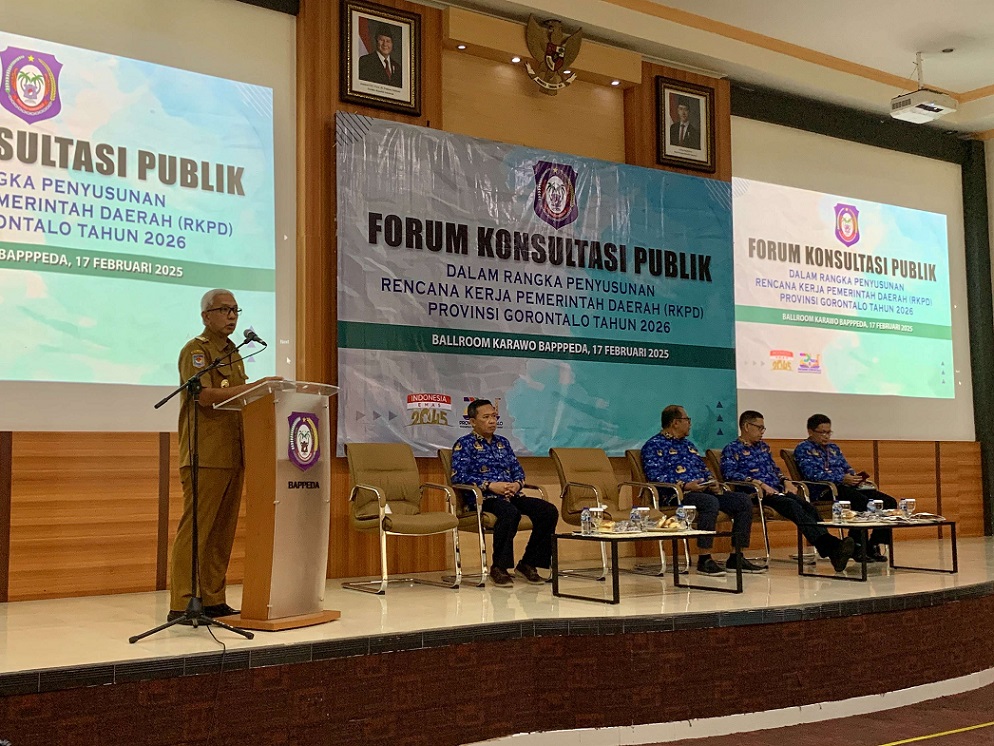News
Gorontalo's economy grew 4.13 percent in 2024
WINDONESIA February 28, 2025 Acting Gorontalo Governor Rudy Salahuddin speaking during the Public Consultation Forum at the Bappeda Gorontalo Ballroom on Feb. 17, 2025. (RRI/Mila)
Acting Gorontalo Governor Rudy Salahuddin speaking during the Public Consultation Forum at the Bappeda Gorontalo Ballroom on Feb. 17, 2025. (RRI/Mila)
The Gorontalo Province was recorded growing 4.13 percent in 2024. The sectors that contributed the most to this growth was wholesale and retail trade. Although it experienced a decline in growth rate compared to the previous year, Gorontalo's macroeconomic performance in 2024 still showed several positive achievements.
The percentage of people in poverty in Gorontalo decreased 0.7 points to 13.87 percent in September 2024 compared to March 2024. The province's Human Development Index (HDI) rose 0.76 points year-on-year (yoy) to 72.01 points. Meanwhile, realized investments to Gorontalo reached about Rp5.38 trillion in 2024.
Acting Gorontalo Governor Rudy Salahuddin expressed the importance of changing the province's economic structure to encourage further growth. He emphasized the importance of encouraging the development of the industrial sector in order to drive the regional economy.
"If in the next five years there is no investment in the industrial sector, we could be left far behind compared to other regions. Just look at Central Sulawesi and North Maluku, which used to be left behind [but] are now developing rapidly thanks to industrialization," said Rudy during the Public Consultation Forum at the Regional Development Planning Agency (Bappeda) Gorontalo Province Ballroom on Feb. 17, 2025.
Rudy also encouraged the development of other commodities outside of corn farming, which has so far been the region's mainstay, in order to provide greater added value. One of them is gold processing in Pohuwato Regency, which has been carried out to increase regional income.
In addition, Rudy touched on the province's high open unemployment rate, which rose slightly from 3.06 percent in August 2023 to 3.31 percent as of August 2024. He stressed that many local university graduates are not employed in Gorontalo's job market and chose to migrate outside the region due to the province's lack of a growing industrial sector.
"We must have an industry that is able to absorb a large number of workers. Otherwise, [university] graduates who continue to emerge every year will have difficulty finding work in Gorontalo," he explained.

